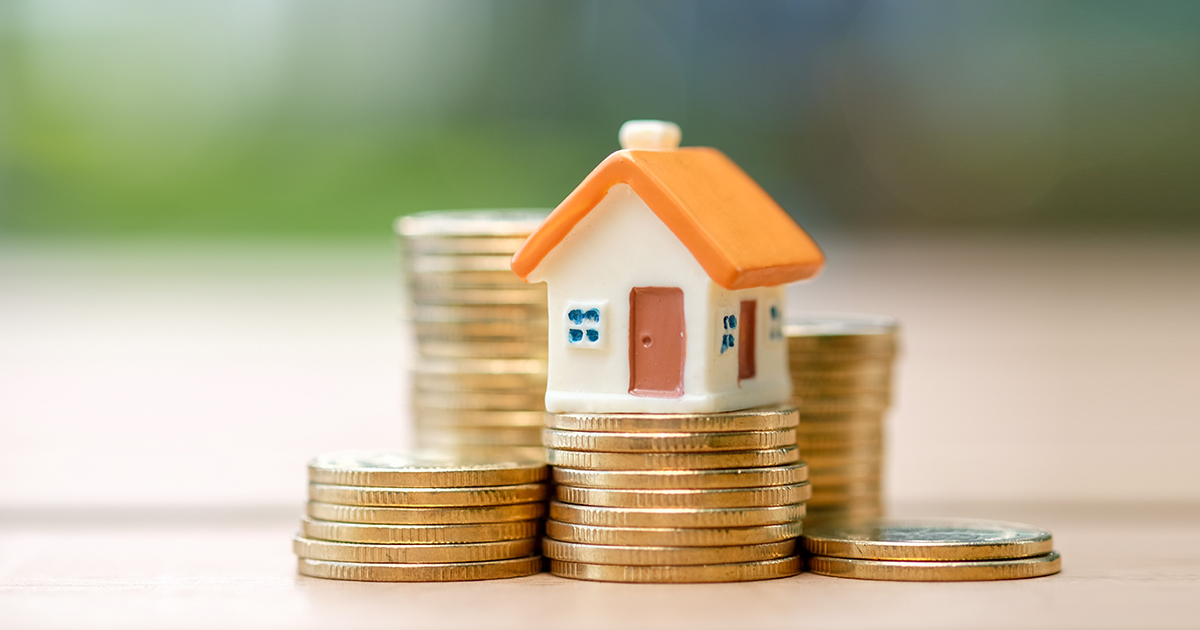If the COVID-19 pandemic has left you with debts you’re not sure how to pay, you’re not alone. In a study done in early May 2020, 47% of Americans have credit card debt, which is already a 4% increase since March, and 23% of adults with credit card debt have added to it.
Whether this is new for you or you’ve wrestled with debt for a while, it is always a worthwhile goal to be debt-free. One option for paying off debt is debt consolidation, or if you’re a homeowner, you can use your home equity.
What is home equity?
When you bought your house, you started making mortgage payments each month. A percentage of each payment goes to principal (the amount of money you borrowed) and the other part goes to interest. Equity is the total amount you’ve paid toward the principal. The longer you make mortgage payments, the more equity you have, and eventually you can use that equity as collateral (an asset you use to help guarantee or secure a loan).
How do I use home equity as collateral?
You can work with a financial institution on one of three options: a home equity loan, a home equity line of credit (HELOC) or a cash-out refinance.
- A home equity loan – Just like you took out a loan to buy your home, you can take out another loan using the equity in your home as collateral. The amount of the loan can be up to 90% of the current value of your home, minus whatever you currently owe on the first mortgage. For example, if your home is currently worth $150,000, and you owe $95,000, you might qualify for a loan amount of up to $40,0000 ($150,000 x 90% = $135,000 minus $95,000 = $40,000 available). Keep in mind that these loans are usually a minimum of $10,000, so only go this route if you have at least that much debt. There are also fees, or ‘closing costs,’ to factor in.
- A HELOC – Rather than a lump sum, a HELOC is like a credit card that you can use as you need to. You still pay interest on the money you use, but it typically has a lower interest rate than your credit card, there are few or no fees and you can leave it open for years.
- A cash-out refinance – In this case you take out a new, larger mortgage loan that pays off your original mortgage, but leaves you with extra cash (the difference between the value of the new loan and the amount you still owe on your house). You may get a lower interest rate than a home equity loan or HELOC, and you may also get a better rate than when you originally bought your home, but you will pay closing costs again.
When is using home equity to pay off debt a good idea?
If most of your debt is on credit cards or other unsecured loans, the interest rates may be so high that it feels like you will never catch up. One benefit to using home equity is the interest rate is often much lower, so you can pay off the high-interest debts and get your payments (and the amount of interest) down to a more manageable level. You’ll also have a longer term to pay off the debt, lowering the monthly payments even more.
Why should I NOT use home equity to pay off debt?
Several reasons:
- You are still trading one debt for another, so the debt isn’t gone, and if you keep spending on your credit cards you’ll keep increasing your debt.
- You’ve just used one of your largest assets as collateral, so if you default on the payments your home could be at risk of foreclosure.
- Because the term of a home equity loan is much longer, you may ultimately pay more in interest over the life of the loan versus working to pay off your credit card debts as quickly as possible.
- Finally, there are fees, or ‘closing costs,’ to a home equity loan or cash-out refinance, much like when you bought your house, so make sure those fees don’t cancel out the benefits.
No matter what you decide to do, the most important step is making sure you don’t get in over your head again. Focus on getting your finances in order by establishing a solid budget, building your savings and investing for the future. Have questions? Reach out to one of our team members today at 800.448.9228.






 Federally Insured by NCUA |
Federally Insured by NCUA |  Equal Housing Opportunity |
Equal Housing Opportunity |